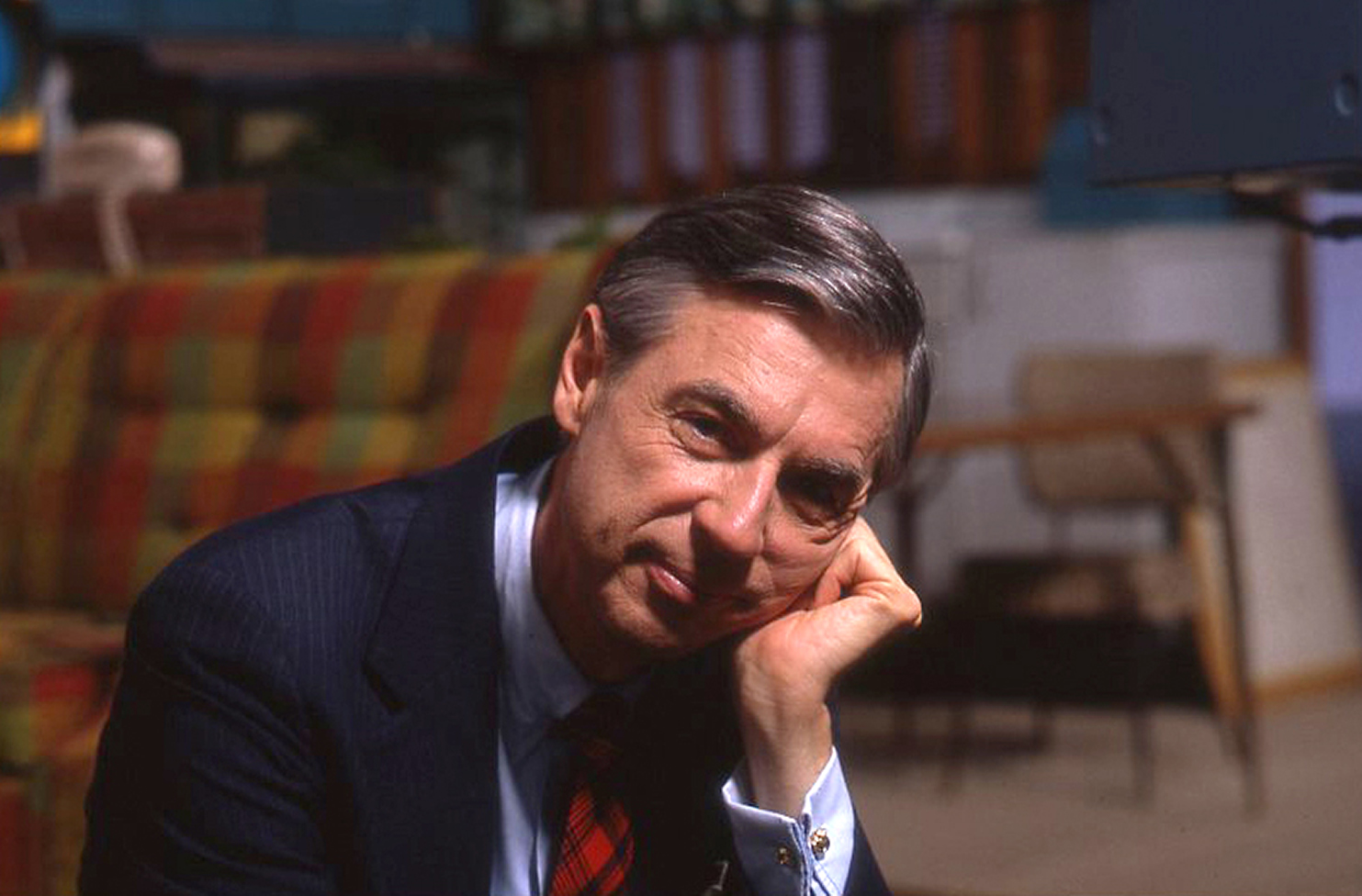A New Mr. Rogers Documentary Makes a Powerful Case for Love in Dark Times

I was nine years old when Mr. Rogers died.
That night after school, my mom turned on the TV and flipped to our local NBC station. I remember thinking that was strange, because when I was young my family exclusively watched WTTW11, Chicagoland’s PBS station. In fact, my parents had successfully convinced my brother and I that channel 11 was our TV’s only channel. I bought the ruse until I had a playdate with a friend who asked me if we could watch The Simpsons. “We don’t get The Simpsons,” I told him. “Everybody gets The Simpsons,” he replied.
Anyway, for whatever reason, my mom wanted to watch a local report on Mr. Rogers’s passing. As I recall, an anchor briefly summed up the legendary children’s show host’s accomplishments, then tossed it over to a reporter who asked kids outside a grade school what Mr. Rogers meant to them. One boy said something about how Mr. Rogers taught him to “treat others like you want to be treated.”
My mom was not impressed. “They shouldn’t be asking kids about him,” she said. “They should be asking adults.”
I don’t think she meant to diss those kids, or the perspective of children in general. That would be pretty damn antithetical to Mr. Rogers’s entire credo. Instead, I think she was trying to get at the profound influence he had—and continues to have—on adults who grew up watching him.
That’s pretty much the premise of Won’t You Be My Neighbour, a new documentary about the life and impact of television personality Fred Rogers. In director Morgan Neville’s film, much of Rogers’s life is told through interviews with adults who either knew him or were affected by him—most notably his wife, kids, and the people he worked closely with to produce his educational children’s television program Mister Rogers’ Neighborhood.
Simply put, Won’t You Be My Neighbor takes you through Rogers’s rise to worldwide influence from humble beginnings in public television. Neville’s documentary fairly frames Rogers as both a radical reformer and, eventually, the conscience of America. It offers some fascinating insight into the life of a pretty strange dude who hated fame and despised television, but adeptly used both (along with some beat-up puppets) to teach kids about human truths and emotional intelligence.
The numerous moments showing Rogers’s remarkably thoughtful interactions with children are a poignant initial draw, and the film’s interviews reveal interesting information about his personality, upbringing, and personal relationships. Though he’s referred to as saintlike by virtually all who knew him, he was not perfect. For instance, Neighborhood actor François Clemmons recalled being frustrated that Rogers did not allow him to be openly gay on the program because he was concerned about how it might affect the show.
The story of how Fred Rogers became Mr. Rogers is interesting, but it’s actually not what makes this documentary great. I enjoyed how the film explains Rogers’s personality and reveals some behind-the-scenes anecdotes, but to me, Won’t You Be My Neighbor is an important film because it makes a convincing case for love above all.
Love is at the foundation of everything, and you deserve to love, be loved, and love yourself for exactly who you are. When you read me write this, it might sound corny, but listen to Rogers speak in the documentary. With each impeccably selected interview excerpt, bit of Mister Rogers dialogue, and song clip, the film pulses with Rogers’s singular message of kindness. It’s hard not to let that swelling thrum of compassion wash over you.
It was the clip of Rogers’s 2001 speech at Middlebury College’s commencement that got me. It appears near the end of the movie, filmed as Rogers was nearing the end of his life. “And for the rest of your days and nights, I hope you can remember,” he says in his soft, deliberate voice. “You never have to do anything sensational in order to be loved.” Letting that sink in, I felt myself start to cry, sniffling alongside a woman who’d been quietly weeping next to me in the theater for the last 20 minutes.
There is, as of yet, no new Mr. Rogers for our fractured modern media landscape—someone to tell us to look for the helpers as Trump spews hatred and schools regularly get shot up. Even so, for now, listen to Rogers, a man who so adeptly used a medium he hated for good. He still offers valuable insight into how to be a better person—on the internet and otherwise—even in these terrible times.
I’m heartened that, as the director Neville told me over the phone, the film has been positively received at high school screenings, where some kids were born years after Rogers’s death. I encourage anyone who even vaguely knows about Mr. Rogers to go see this documentary. As you watch, I think you’ll remember something special you might not even realize he taught you.
Sign up for our newsletter to get the best of VICE delivered to your inbox daily.
Follow Peter Slattery on Twitter.
This article originally appeared on VICE US.